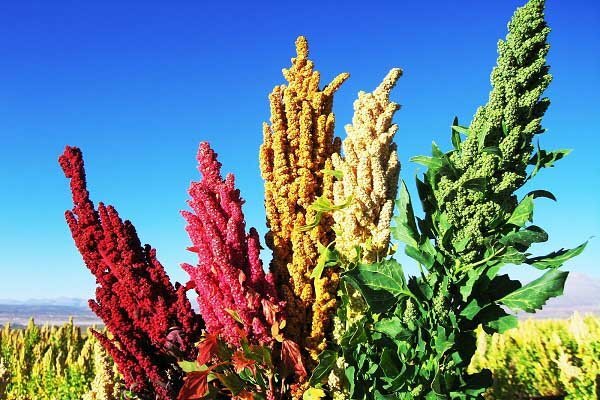Vegetable caviar: Quinoa new guest of Iranian cuisine

TEHRAN – For the past couple of years, Iranian farmers in different provinces have been cultivating Quinoa, a healthy plant that is one of the oldest foods in the world, dating back to 5,000 years ago.
Quinoa’s glutton-free seeds are rich in protein, dietary fiber, B vitamins, and dietary minerals in amounts greater than in many grains.
Easy cultivation, low water requirement compared to other plants, resistance to salinity, adaptation to different climatic regions, great properties, good price in the world market, and a short growing period have caused farmers to cultivate this plant.
Quinoa planting time in Iran is early March to the end of April. The product is yielded 3 to 5 tons per hectare.
Despite high protein content, the plant has no gluten at all and is recommended for people who should not consume gluten.
The proteins in quinoa offer a wide range of amino acids, which are vital for supporting muscle development and immune activity in addition to preventing cancer development, among other essential functions.
Unlike other grains, Quinoa has a low blood sugar index and diabetics can use this product safely.
Quinoa has a high fiber content compared to other grains, providing 5.18 g in a single 185 g cup. This equates to at least 15.42 percent of a person’s daily requirement, depending on their age and gender.
According to the Academy of Nutrition and Dietetics, consuming enough fiber can help reduce the risk of several health conditions, including constipation, high cholesterol, high blood pressure, and diverticulosis.
Diets rich in fiber may also promote a healthy weight. This is because foods high in fiber help people feel fuller for longer, potentially reducing their overall intake of food.
Quinoa provides vitamin E, which is an antioxidant compound that may help reduce the risk of coronary heart disease, certain cancers, and several eye disorders.
One cup of cooked quinoa contains 118 mg of magnesium, which is essential for the function of more than 300 enzymatic reactions and is present in every cell of the body.
A cup of quinoa supplies 2.76 mg of iron, adequate iron intake supports healthy connective tissue and muscle metabolism.
It also can help protect against infection, heart disease, diabetes, and several cancers, including those of the skin and liver; It is also a bleeding stopper, toothache relief, treatment of urinary tract infection, and insect repellent.
FB/MG
Leave a Comment